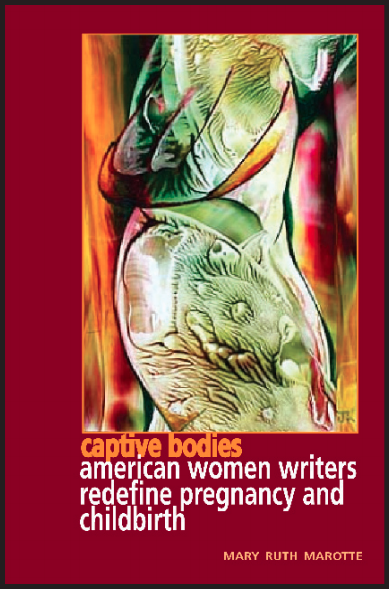
Price: $9.95
Page Count: 146
Publication Date: October 2008
ISBN: 978-1-55014-999-9
“Marotte’s book goes beyond simply arguing that literary depictions of pregnancy are worthy of our attention, instead arguing that the social critiques they offer are part of women’s ongoing attempts to wrest pregnancy and maternity out of the hands of those who would (and have for centuries) sugar-coated it, over-spiritualized it, devalued it, isolated it, and naturalized it.” -Jane Simonsen, History and Gender/Women’s Studies, Augustana College
Introduction: Captive Bodies: American Women Writers Redefine Pregnancy and Childbirth
Chapter 1:
The Historical Female Captivity Narrative as Precursor to the Twentieth-Century Pregnancy Narrative
Chapter 2:
Legitimizing Captivity: Pregnancy from Chopin to O’Connor
Chapter 3:
Working-Class Writers on Pregnancy: Freeing Socially and Economically Captive Bodies
Chapter 4:
Emerging From Captivity: How African American Women Writers Use Pregnancy and Childbirth to Confront the Past and Create the Future
Chapter 5:
Captivated By Captivity: How Memoirs Reinscribe Pregnancy for the Contemporary Reader
Conclusion
References
Mary Ruth Marotte, Ph.D., is an Assistant Professor of English at The University of Central Arkansas, where she specializes in women’s studies and critical theory. She is the co-founder and co-director of UCA’s annual graduate literature conference and serves on the board of the Arkansas Shakespeare Theater. Her scholarly pursuits remain those that address the problems and possibilities of merging the worlds of mothering and academia. She lives in Conway, Arkansas with her husband and three young children.


